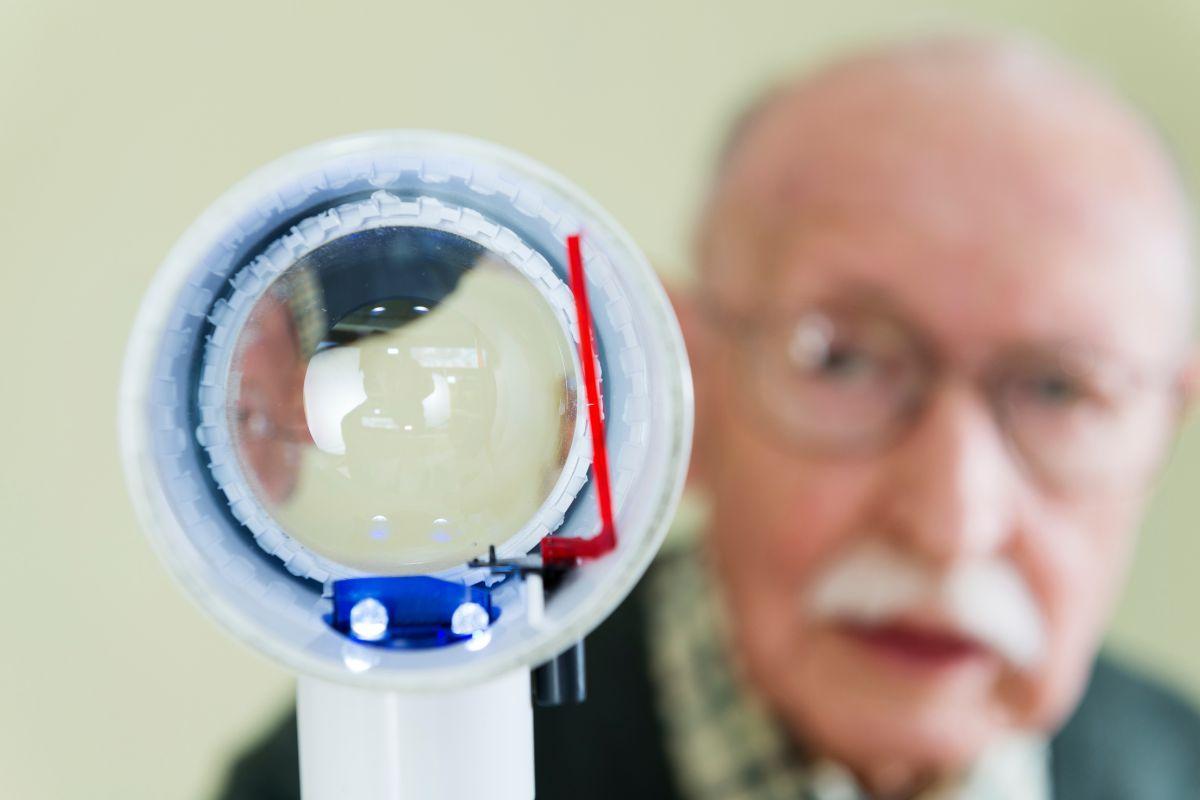Being diagnosed with Age-Related Macular Degeneration (AMD) can be worrying, especially when it affects vision. AMD is an eye condition in which there is damage in the macula, causing a loss of sharp, central vision.There are effective treatments available today performed by ophthalmologists that can help preserve sight and maintain independence, such as injections, laser, and other new emerging therapies. Doctify connects patients with trusted ophthalmologists who specialise in macular and retinal care.
What is Age-Related Macular Degeneration (AMD)
AMD is an eye condition that damages the macula, the part of the retina responsible for sharp, central vision. The common symptoms frequently are: blurred or distorted vision, difficulty reading, straight lines appearing wavy, difficulty seeing in low light, and/or blind spots in the center of vision. There are two main types are: dry (atrophic) – gradual breakdown of light-sensitive cells, or wet (neovascular) – abnormal blood vessels leak fluid or blood under the retina.
In age-related macular degeneration (AMD) cells in one of the layers of the macula are gradually lost and vision starts to deteriorate. AMD progresses to the intermediate stage where you can notice some changes in your vision, for example: you might have trouble reading and/or watching television, sensitive eyes to light, or even having problems when going from dark room to light room and vice versa.
Dr. Mark Yodaiken
Diagnosis and Monitoring
In people over 50 years, regular eye exams and monitoring are crucial. In patients with signs and symptoms of alterations in the vision, retinal imaging and OCT scans help track changes and guide treatment. Early detection gives ophthalmologists the best chance to slow or stop progression.
Treatment Options for Wet AMD
The management varies between wet and dry AMD. Below are the treatment options used by ophthalmologists for wet AMD:
Anti-VEGF injections (e.g., ranibizumab, aflibercept, bevacizumab)
- Block the growth of abnormal blood vessels.
- Usually given monthly at first, then spaced out as the eye stabilises.
- Can significantly slow vision loss and sometimes improve sight.
Laser photocoagulation (less common today)
- Seals leaking vessels but used selectively based on lesion type and location.
Managing Dry AMD
There is no current cure for dry AMD, but lifestyle and nutritional support can slow progression:
- AREDS supplements (vitamins C, E, zinc, copper, lutein, zeaxanthin).
- Diet rich in leafy greens and omega-3s.
- Stop smoking, this is one of the biggest risk factors.
It is important to have a regular monitoring in order to detect any shift from dry to wet AMD.
Role of Laser and Emerging Therapies
Ophthalmologists tailor treatments based on disease stage and overall eye health. Laser and injection treatments have helped millions of people experiencing AMD. For example, Subthreshold laser therapy has been very useful, it is gentle laser stimulation to improve retinal metabolism in early AMD. As well, scientists are investigating new approaches for ophthalmologists to restore the retinal function, such as gene therapy and stem cell research.
Living With AMD
Living with AMD is not always easy, here are some recommendations that can help many patients. Start using practical aids, like magnifiers, high-contrast lighting, and large-print materials. Also, it is important to have support from low-vision specialists and occupational therapists. Last but least, having emotional wellbeing, we know adjusting to vision changes can take time — support groups can be an excellent strategy and help.
When to See an Ophthalmologist
Please contact an ophthalmologist if you experience any of the following:
- Sudden changes in vision (distortion, dark spots, or central blurring).
- Sensitive eyes to light or having problems when going from dark room to light room and vice versa.
- Family history of AMD or age over 50.
Doctify makes it easy to book an appointment with verified retina specialists for ongoing care and early intervention.
Conclusion
AMD is one of the leading causes of vision loss, but treatments like anti-VEGF injections have transformed outcomes. Regular monitoring and early action can preserve sight for many years. In people over 50 years, regular eye exams and monitoring are crucial. If you are experiencing blurred or distorted vision, difficulty reading, straight lines appearing wavy, difficulty seeing in low light, and/or blind spots in the center of vision, we invite you to connect with a trusted ophthalmologist on Doctify to explore treatment and monitoring options for macular health.
Find the right specialist for you. Doctify uses verified reviews so you can make the best decision for your healthcare.

Feel free to consult an ophthalmologist through Doctify for personalised advice whenever you want, we will be happy to help you! Find the best ophthalmologists in the United Kingdom or search for the best specialists globally:
- Ophthalmologists in the United Arab Emirates
- Ophthalmologist in Germany
- Ophthalmologist in Austria
- Ophthalmologist in Ireland
- Ophthalmologist in Australia
Medically Reviewed
Last reviewed on 21/10/2025




